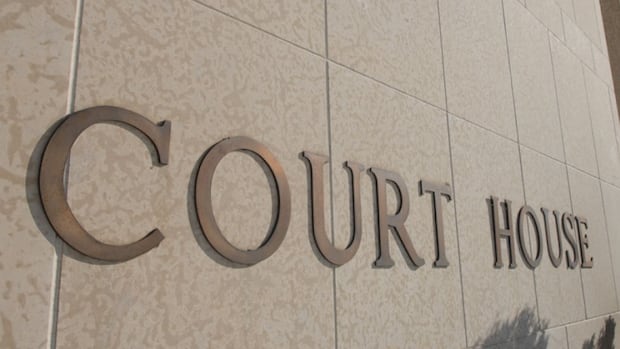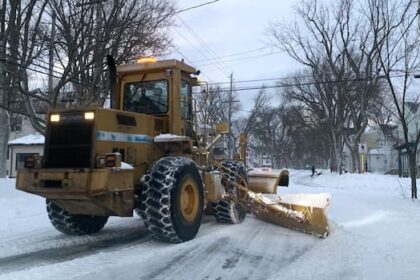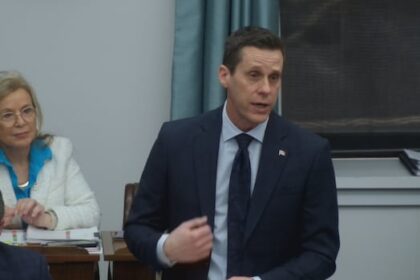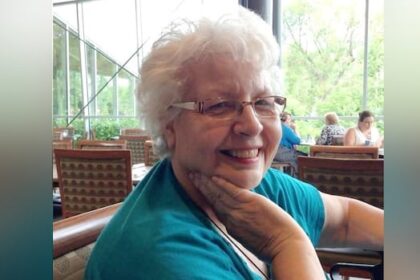Saskatchewan·NewThe Saskatchewan Court of Appeal will hear arguments from provincial lawyers Wednesday on why an appeal should go forward in a class action lawsuit against the province for its use of birth alerts.Class action suit filed against province for its use of birth alertsScott Larson · CBC News · Posted: Nov 26, 2025 7:00 AM EST | Last Updated: 27 minutes agoListen to this articleEstimated 3 minutesThe audio version of this article is generated by text-to-speech, a technology based on artificial intelligence.The province is arguing a pair of reports should not be allowed as evidence in a proposed class action suit against Saskatchewan for its use of birth alerts. (CBC)Lawyers for the provincial government are expected to argue on Wednesday that the Saskatchewan Court of Appeal should hear the province’s appeal of a lower court’s ruling that two reports are admissible in a class action lawsuit over the use of birth alerts.The proposed class action, Cheekinew v. Government of Saskatchewan, was filed on behalf of all persons who were the subject of birth alerts issued by the Ministry of Social Services.The practice involved social workers or health-care workers placing alerts on the files of pregnant women who were considered to be at high risk, before they went into labour. In Saskatchewan, the women were most often Indigenous, according to government data. The babies were often later seized by the government and put into provincial care. The representative plaintiff in the case is Chantelle Cheekinew, a First Nations woman from Regina who was subject to birth alerts in 2008, 2011 and 2019, prior to the birth of her children. Saskatchewan formally ended the practice of birth alerts on Feb. 1, 2021.As first reported by APTN News, lawyers for the province will argue that two national reports from the Truth and Reconciliation Commission (TRC) and the National Inquiry on Missing and Murdered Indigenous Women and Girls (NIMMIWG) should not be admitted as evidence in the proposed class action.Under the birth alert practice, social workers or health-care workers would place alerts on the files of expecting mothers — in Saskatchewan, most often Indigenous woman, according to government data — who were considered high-risk. In many cases, their babies would later be apprehended and placed in government care. (CBC)“The Saskatchewan Government attempts to appeal on the basis that the final reports of the TRC and the NIMMIWG are ‘patently unreliable,’” lawyers representing Cheekinew said in a statement to CBC.”This implies that survivors of birth alerts who testified before the TRC and the NIMMIWG should not be believed,” the statement said.”The courage required to share intimately personal details before Commissions and Inquiries with public interest mandates — for the benefit of all Canadians — should be treated with greater respect.”The two reports in question are Reclaiming Power and Place: The Final Report of the NIMMIWG, and Honouring the Trust, Reconciling for the Future: Summary of The Final Report of the TRC.The reports were filed in support of an application for certification of the class action suit.The province said its appeal is made on the grounds that in allowing the two reports as evidence, A King’s Bench judge “erred by failing to take full account of the legal test he was required to apply when considering whether the Report Exhibits … could be admitted as evidence pursuant to the public documents exception to the rule against hearsay.”In an email to CBC, a justice ministry spokesperson said “the brief filed in this case focuses on the admissibility of certain public documents as evidence to support specific allegations in a court of law.”The spokesperson added that the province’s appeal brief “does not speak to the public policy purposes for which these documents were intended, including Saskatchewan’s continuing support for the principles of truth and reconciliation.”The spokesperson said the province will not comment further as the matter is before the court.ABOUT THE AUTHORScott Larson works for CBC News in Saskatoon. scott.larson@cbc.ca
Sask. government calls TRC and MMIWG reports unreliable in birth alerts class action lawsuit











